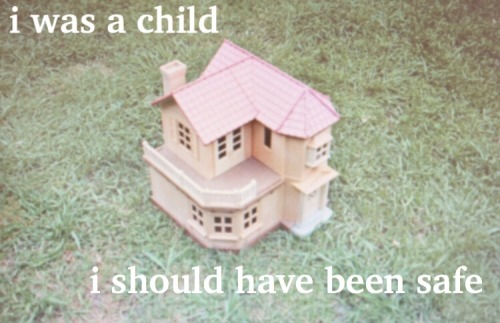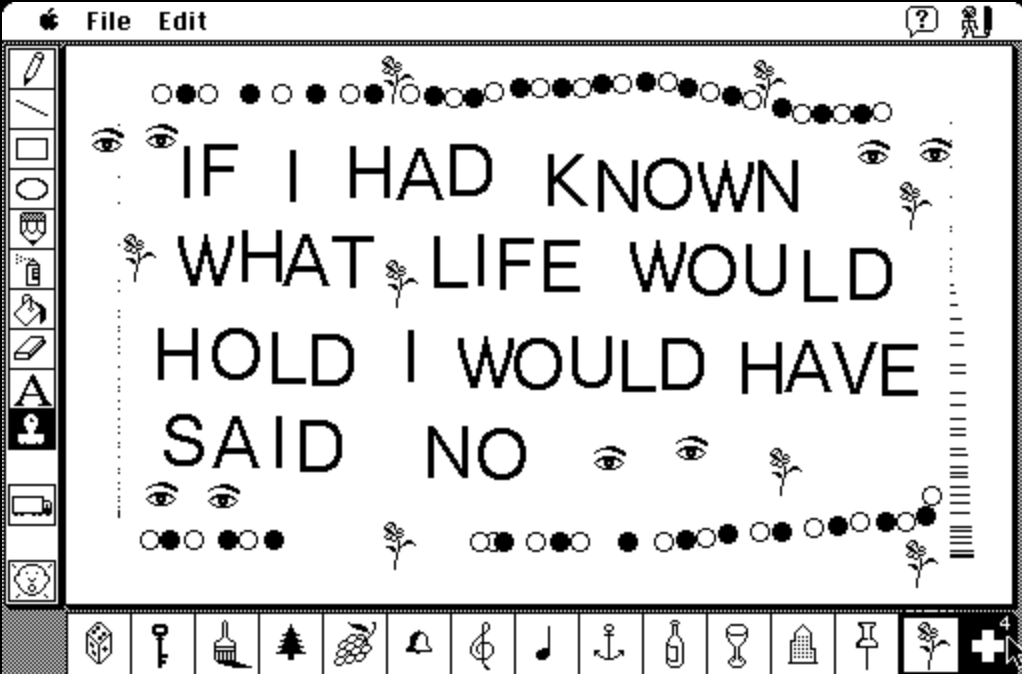In Tumblr’s high times before the adult content ban forced away most of its users (fun fact, I am quoted by name as a “furby enthusiast” in Vox Media’s article covering the debacle), there existed a form of “art” – one can argue about whether or not it actually was – on the site that I’ve never actually seen replicated anywhere else. Site users would create blogs dedicated to them getting over/coping with childhood trauma and would create what was called vent art. Vent art as a concept is not unique to Tumblr, but the form of vent art they would create was. It was simple: they would take a black-and-white coloring book page, or use MS Paint/other childhood paint computer programs, or somehow involve child media vector, and in big font over the image would write something related to how much pain they were in. Like so:



I can’t help but feel like – well, know like – there is an application for this in poetry. Like taking a children’s coloring book and writing poetry inside of the margins of the art. Or layering photography into your poetry. There’s something so raw and uncomfortable about this artwork because you know it’s genuine and real; someone is using it to come to terms with something horrible that happened to them as a child. And there is a poetry in it – changing the placement of words, the font that is used, the background that is set. What do you think?
